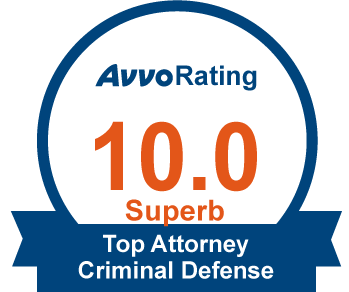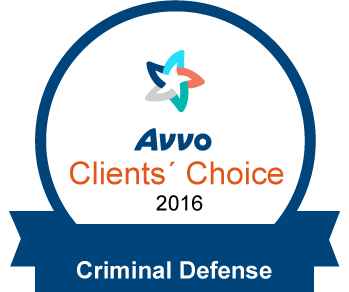Understanding California Proposition 36
Popularly known as Proposition 36, Proposition 36 is the criminal punishing initiative, which was approved into law by voters in California on 7th November 2000. According to this initiative, non-violent drug criminals should be allowed to serve their punishment in a substance treatment center instead of being sentenced to prison or jail. The initiative is also called the Substance Abuse & Crime Prevention Code of 2000.
The statutes that determine drug offenders who could be suitable for the alternative punishing program can be complicated and technical, but an experienced criminal attorney can help you understand them. An attorney can use these laws effectively to keep an offender out of incarceration if they are facing drug charges.
Proposition 36 laws are provided under Sections 1210, 1210.1, as well as 3063.1 of California statutes, and they are a type of the state's drug change. Drug change, in this case, means the practice that allows qualified drug offenders to get their drug criminal charges and convictions discharged if they effectively go through a drug management program approved by the court. A drug management program that is approved by the court is the kind of program that will offer some of these services:
- Drug/alcohol education,
- Residential treatment or outpatient services,
- Drug detoxification facilities or therapy for narcotic replacement
- Aftercare services
Note that this program is not the same as those drug rehabilitation services that exist in jail or prison facilities.
Proposition 36 was meant to change California drug laws to allow first and second-time substance offenders who are facing drug charges but have not been charged with violent offenses to get at least one year of drug treatment as an alternative to being sent to prison or jail. The period could be increased by a maximum of two years if the court feels that the extension is necessary. After the initiative was accepted in 2000, most of the participants registered in outpatient programs while about 10% or less were registered in residential drug treatment programs.
The other use for Proposition 36 is to allow parolees who have violated their conditional release by perpetrating a drug offense that doesn’t involve violence to serve their punishment out of jail or prison. With this law in place, any probationer who will commit a non-violent drug/substance offense or breaks a condition related to the use of drugs while out on bail may not be sent to jail but will be obligated to join a drug management program. What are some of these non-violent drug offenses?
According to Proposition 36, non-violent-related drug offenses are committed when a person illegally uses or is under the effect of one of those drugs listed under the State’s Controlled Substances Act. A person will also be guilty if they were found in possession or transporting one or more of those drugs for their own use. Some of the controlled substances that are used to convict offenders include:
- Heroin
- Ketamine
- Cocaine
- Gamma-hydroxybutyric acid
- Peyote
- Marijuana
- Ecstasy
- Methamphetamines
- Certain hallucinogenic drugs like phencyclidine
- Certain prescription medications such as hydrocodone and codeine
Some of the non-violent drug offenses you could face in California include:
- Violation of Sections 11377 and 11250 of the California Health and Safety Act, which are the laws against the possession of controlled substances for personal use
- Violation of Section 11357 of the state’s Health and Safety Act, which is the law that prohibits possession of marijuana that weighs less than an ounce
- Violation of Section 11550 of California Health and Safety Act, which is the law against a person being found under the effect of an illegal drug/substance.
Note that conviction for drug crimes that relate to the sale and manufacturing of controlled substances are not included in Proposition 36. Such offenses include:
- Possession of controlled substances for sale in violation of Section 11351 of the state’s Health and Safety Act
- Sale or transportation of controlled substances in violation of Section 11352 of the state’s Health and Safety Act
- Sale or transportation of marijuana in violation of Section 11360 of the state’s Health and Safety Act
- Having marijuana for sale in violation of Section 11359
- Possession of methamphetamine or other less dangerous controlled substances for sale in violation of Section 11378 of California Health and Safety Act
Other crimes that are not included in Proposition 36 are:
California courts have a list of crimes that do not meet the requirements for Prop 36 punishing. These are the crimes that go beyond the mere possession, usage, or transportation of drugs for personal use. These are:
- California laws against the cultivation of marijuana provided under Section 11358 of the state's Health and Safety Act. Note that this law will still be exempted from the sentencing even when the cultivation was done for personal use.
- California laws against drug possession while equipped with an operable firearm, as provided under Section 11370.1(a) of the state’s Health and Safety Act.
- State laws against forgery or handing out a fictitious prescription to buy drugs as provided under Section 11368 of the state’s Health and Safety Act
Limitations on Eligibility for Proposition 36 Sentencing
Other than the drug-related offenses that are exempt from Proposition 36 sentencing as provided above, there are reasons why an offender may not qualify for Proposition 36 eligibility even if the crime they have committed qualifies. Some of these reasons are:
- If the offender has a prior strike conviction
If you are found guilty of committing one or even more serious felonies or violent offenses before, which are the crimes that are considered as strikes in the state's three-strikes law, you may not be eligible for Prop 36 sentencing. An offender facing such a charge can only be eligible for this sentencing if the current non-violent drug crime happened five years after they were released from jail or after they were found guilty of the felony.
- If the offender was concurrently sentenced to a felony or misdemeanor that is unrelated to drugs
If you were sentenced to a felony or misdemeanor offense that is un-related to drugs at the same time as the non-violent drug offense, the court would not allow you to receive the Proposition 36 sentencing.
- If the offender was carrying a deadly weapon such as a firearm when they committed the non-violent drug offense
- If the offender refused to get drug management as a requirement for probation
- If the offender has participated in at least two other Prop 36 programs in the past
This means that if the offender has two different verdicts for non-violent drug crimes, they will not be eligible for third sentencing under Proposition 36. In such a case, the judge may have enough reason to believe that the offender is incapable of benefitting from additional drug treatment and will, therefore, not send him/her to a drug treatment program.
Probation Conditions Under Proposition 36
For an offender to qualify for sentencing under Proposition 36, they must be eligible for the following conditions:
- They must have pleaded guilty to the non-violent drug charge they were facing
- They must have been convicted for that non-violent drug offense after going through a judge or jury trial
- They must have been parolees, and while out on bail, they must have either committed another non-violent drug crime or violated a substance-related condition of their parole.
When either of these conditions is met, the judge will give the offender probation, or modify their parole to include a condition that they must successfully go through a drug management program that must include undertaking drug tests. The court might impose other conditions of parole or probation, for example:
- Participation in occupational training
- Attending family counseling
- Involvement in community service
The terms on your probation must not be violated, as there are several penalties that the jury might perhaps impose on you liable to the condition you have broken.
What if you aren’t amenable to the drug treatment?
If the treatment provider has reasons to trust that you may never benefit from the drug management program the court has recommended, the parole board or the probation department may decide to cancel your parole or probation. There will be a parole revocation or a probation violation inquiry in which the judge may agree to withdraw your parole or probation. You will then be sentenced to the full time of incarceration depending on the offense in which you were convicted.
To decide whether or not you are responsive to drug management, the judge will consider a few matters, for instance:
- Whether or not you have severely violated any of the set conditions for the treatment
- You have broken a severe rule at the substance management facility
- You have violated the program’s rules repeatedly in a manner that makes it impossible for you to function at the treatment center
- You continue to refuse to take part in the treatment program
What’s Next After Successfully Completing the Drug Management Program?
After successfully going through the drug management program under Proposition 36, the offender is allowed to petition the court to dismiss their conviction. However, the judge has to agree that you have indeed completed the program and that you have submitted to all the terms of your probation. If everything is found to be okay, your case will be dismissed. Effective completion of the program, in this case, will mean going through the entire drug treatment course as suggested by the court and the drug treatment provider. By the end of the treatment, there should be a good reason to trust that you may never abuse controlled substances again.
As easy as it may sound, a lot of people are unable to complete their drug management programs. Actually, in the first years after the initiative was put into practice, only a third of the people that were enrolled in the program were able to complete it successfully. Completion of the program is crucial though, as it is the only way you will have your charge expunged as provided under the state's expungement laws.
When this happens, you will be free from all the penalties and any conditions that stemmed from the crime, only that you will not be allowed to own a concealed firearm. When the case is dismissed, the offender is allowed to legally say that they have certainly not been detained or sentenced to the crime that caused the treatment except in the following situation:
- When responding to a police inquiry by a peace officer
- When applying for a job as a peace officer
- When filling in a questionnaire or applying for a job in a government office
- When applying for a license in a local or state license agency
- When responding to an issue about serving on a bench
Find a Long Beach Criminal Attorney Near Me
Drug abuse continues to be a significant problem in our society today. Severe penalties for those found guilty of use and abuse of the controlled substances seems like an improper way to treat those who have not committed a non-violent crime. However, California Proposition 36 provides an alternative to non-violent drug offenders to benefit from a drug management program that will help them get better in the end. If you are facing a criminal drug charge and you would like to benefit from this alternative sentencing, the Long Beach Criminal Attorney can help you. Call us at 562-308-7807 if you have a case out of Long Beach.








